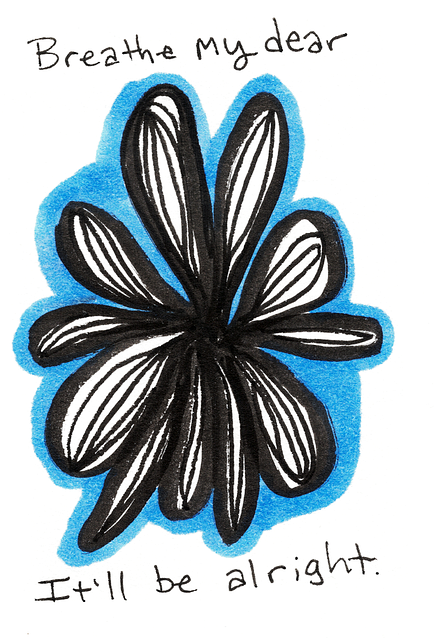Chronic stress, a leading cause of anxiety, depression, and physical health issues, can be mitigated through Broomfield Cognitive Behavioral Therapy (CBT), which targets negative thought patterns. CBT combines techniques like mindfulness meditation, cognitive restructuring, and exposure therapy to empower individuals with personalized coping strategies. Cultural competency training is crucial for healthcare providers to address stress across diverse populations effectively. Integrating CBT into mental health policies and professional development enhances well-being, especially in demanding work environments. Personalized stress management plans, guided by CBT principles, workshops, and support networks, offer long-term solutions for improved mental wellness.
Stress reduction is an essential aspect of maintaining good mental health. In this article, we explore effective methods to manage stress and its profound impact on our lives. From understanding the root causes to employing evidence-based techniques like Broomfield Cognitive Behavioral Therapy (CBT), you’ll discover a comprehensive guide. Learn about additional therapies and create a personalized plan tailored to your needs. Embrace a healthier, less stressed version of yourself through these powerful strategies.
- Understanding Stress and Its Impact
- Cognitive Behavioral Therapy (Broomfield Approach)
- Additional Stress Reduction Techniques
- Creating a Personalized Stress Management Plan
Understanding Stress and Its Impact

Stress is a natural response to challenging situations, but when it becomes chronic, it can significantly impact our physical and mental health. Understanding stress involves recognizing its triggers, which vary from person to person. These triggers could be work-related pressures, personal relationships, financial worries, or even positive life changes. Broomfield Cognitive Behavioral Therapy (CBT) offers a structured approach to managing stress by helping individuals identify and change negative thought patterns and behaviors contributing to their distress.
The impact of prolonged stress on emotional well-being promotion techniques is profound. It can lead to increased anxiety, depression, difficulty concentrating, and even physical ailments such as high blood pressure and weakened immune systems. Mindfulness meditation has emerged as a valuable tool in stress reduction practices, teaching individuals to focus on the present moment, accept their feelings without judgment, and cultivate a sense of calm. Moreover, healthcare provider cultural competency training plays a crucial role in recognizing and addressing stress-related issues within diverse populations, ensuring effective support for all patients.
Cognitive Behavioral Therapy (Broomfield Approach)

Cognitive Behavioral Therapy (Broomfield Approach) is a highly effective stress reduction method that focuses on challenging and changing negative thought patterns and behaviors. This approach, developed by Dr. Aaron T. Beck, emphasizes the connection between thoughts, feelings, and actions, aiming to improve emotional regulation and boost confidence. By identifying and modifying distorted thinking, individuals can gain a more balanced perspective, leading to reduced stress levels and improved mental health.
The Broomfield Cognitive Behavioral Therapy involves collaborative goal setting, education on cognitive restructuring techniques, and exposure to feared situations in a safe environment. This structured process enables individuals to develop coping strategies tailored to their unique needs. As research supports its efficacy across various populations, CBT is increasingly integrated into mental health policy analysis and advocacy, recognizing its potential to enhance overall well-being and promote resilience in the face of life’s challenges.
Additional Stress Reduction Techniques

In addition to established stress reduction methods like exercise and mindfulness, Broomfield Cognitive Behavioral Therapy (CBT) offers innovative techniques. CBT helps individuals identify and challenge negative thought patterns, replacing them with healthier alternatives. This therapy is particularly effective in managing anxiety and depression, common stressors that can lead to burnout, especially among healthcare providers. Incorporating cognitive behavioral approaches into stress management routines empowers folks to take control of their mental health.
Cultural sensitivity in mental healthcare practice plays a crucial role in effective CBT. Recognizing and understanding diverse perspectives ensures tailored support for each individual’s unique needs. Moreover, burnout prevention strategies for healthcare providers can be enhanced by integrating self-esteem improvement techniques learned through CBT. By fostering resilience and positive self-perception, healthcare professionals can better navigate demanding work environments, ultimately leading to improved well-being and reduced stress levels.
Creating a Personalized Stress Management Plan

Creating a Personalized Stress Management Plan is a powerful tool for anyone seeking to enhance their mental wellness and overall well-being. It involves identifying unique stressors and developing tailored strategies, often with the guidance of professionals like those offering Broomfield Cognitive Behavioral Therapy (CBT). CBT techniques are highly effective in teaching individuals to challenge negative thought patterns contributing to stress.
A custom plan might include a combination of Empathy Building Strategies, mindfulness practices, and structured routines. Stress Management Workshops Organization can also play a significant role by providing resources and support networks. By personalizing these approaches, one can effectively navigate life’s challenges, ensuring they are equipped with tools to manage stress in the long term.
Stress is an inevitable part of life, but managing it effectively can significantly enhance our overall well-being. By understanding the impact of stress and utilizing various techniques like Broomfield Cognitive Behavioral Therapy (CBT), individuals can gain control over their mental health. CBT offers a structured approach to challenge negative thoughts and behaviors, fostering resilience and promoting better coping strategies. Additionally, personalizing stress management plans allows for tailored solutions, ensuring long-term success in navigating life’s challenges. Integrating these methods empowers folks to embrace a more balanced and peaceful existence.














